Construction Materials Prices in Lebanon
Lebanon is an Asian country on the shores of the Mediterranean Sea with a history of several thousand years of civilization. Building materials are used in the construction and production of various structures. Precious stones, fertilizers, salt, iron ore, and cement are major mineral products of Lebanon. Fine sand is usually easily found on the beach and in the river. Roads, Rail, Sea and Air are main transition ways in Lebanon. Plaster is a soft, white powder obtained from gypsum
Add your import and export orders to this list
Warning: Undefined variable $formTitle in /home/anbar/domains/anbar.asia/anbar/inc/html/desktop/orderform.php on line 10
Warning: Undefined variable $marketName in /home/anbar/domains/anbar.asia/anbar/inc/html/desktop/orderform.php on line 12
Warning: Undefined variable $location in /home/anbar/domains/anbar.asia/anbar/inc/html/desktop/orderform.php on line 12
If you want to trade in the , please join in Anbar Asia. Your order will be shown here, so the traders of contact you

Lebanese has a stable economy but now with almost low growth. The construction industry is one of the most prosperous industries and businesses in the Middle East. Road, rail, sea, and airlines between Lebanon and the countries is examined as a key infrastructure for the delivery of goods and commercial cargo. Soil is a combination of excellent minerals and minerals created by weathering and rock destruction
- Lebanon Glass Market
- Lebanon Ceramic Tile Market
- Lebanon Plaster Market
- Lebanon Cement Market
- Lebanon wood and timber Market
- Lebanon Clay Market
- Lebanon Brick Market
- Lebanon Sand Market
- Lebanon Concrete blocks Market
- Lebanon paint Market
- Lebanon lime Market
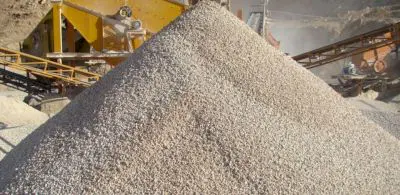
Gravel smaller than sand is called fine sand. Fine sand is usually easily found on the beach and in the river. In civil engineering, according to the classification, ASTM called fine sand for gravels smaller than 4.75 mm and coarser than 0.075 mm of.
Read More ...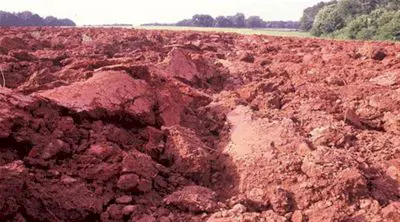
Clay is one of the types of sticky soils that is used in construction. This soil is the result of erosion of metamorphic and igneous rocks and because of its very fine grains, it is also called colloid. The important point in using this material is to choose a quality sample of it. Clay is the best material that can be used to control the temperature of the building.
Read More ...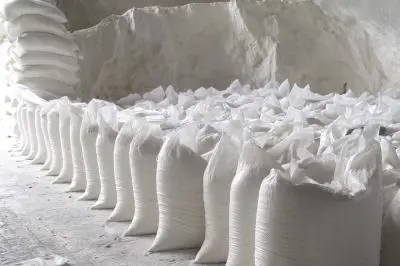
Whitewash plaster: The price of whitewash plaster is very reasonable. This plaster is used to cover the surface and whitewash the walls, and its color is completely white.
Read More ...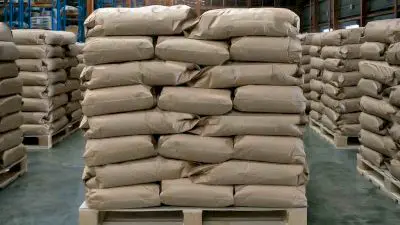
The combination of cement with water creates a hard material called concrete, which plays an important role in strengthening various structures.
Read More ...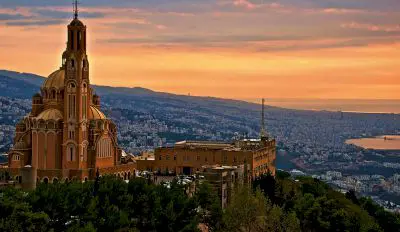
Lebanon is an Asian country on the shores of the Mediterranean Sea with a history of several thousand years of civilization. The region was one part of the Levant and became an independent state after the collapse of the Ottoman Empire. The majority of the population is Muslim. Several tribes are living in Lebanon. About 30% of the country's population is Shiite.
Read More ...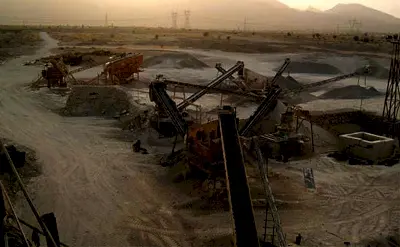
Sand is produced by crushing rocks. Coarse stones are produced from the crushing and separation of natural stones, and finer sands, in addition to stones, also contain shells and corals. In civil engineering, aggregates smaller than 75 mm and coarser than 4.75 are called sand. Sands are divided into two categories according to the source and type of grains used in construction.
Read More ...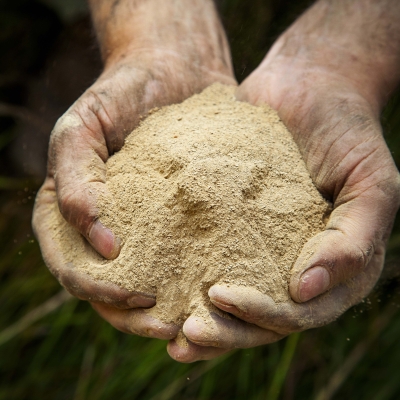
Clay soil is a term that refers to sedimentary rocks containing a significant amount of clay minerals, such as rock. Iran is one of the special regions of the world that has many resources; The export capacity of clay from the waters of Chabahar port to Pakistan shows that Iran has the richest resources.
Read More ... Insulation materials improve the durability of repaired joints and provide an effective means to augment the building's overall sustainability without substituting existing construction materials. BEIRUT, June 29 (Xinhua) -- Lebanon's construction material industries are struggling to cope with up to the 40 percent lower demand for their products, as reported by exhibitors at Project Lebanon 2018 that closed on Friday. Project Lebanon is a yearly event that brings together hundreds of exhibitors from 16 countries to display the construction industry's novelties. The lower demand for construction materials is caused by a decrease in the number of commercial and residential projects in Lebanon as a result of weak demand for houses and offices by Lebanese citizens. "Demand for housing in Lebanon declined sharply in the first quarter of 2018 due to the suspension of interest rate subsidies on housing loans at the beginning of the year," said Nassib Ghobril, chief economist and head of the economic research and analysis department at the Byblos Bank Group. The central bank of Lebanon provided banks with a fund worth 500 million U. To compensate for their losses, Lebanon's construction and building material industries are looking forward to taking part in Syria's Mohammad Rizk, marketing manager at Ricci Ceramica, a ceramic wholesaler, said the first step for entering the Syrian market for his company is through its participation in Project Lebanon. Exhibitors are also optimistic about CEDRE Conference, an international conference in support of Lebanese development and reforms held in Paris in April, which secured over 11 billion dollars in soft loans and grants from international donors to revamp Lebanon's ailing infrastructure and bolster its economy. During the opening of Project Lebanon on Tuesday, Lebanese Prime Minister designate Saad Hariri said Lebanese companies will be able to take part in new big projects following the conference. Meanwhile, Albert Aoun, chairman of the International Fairs and Promotions Group, said Lebanon will witness the launching of several construction projects after the conference. In pics: Chinese peacekeepers work in southern Lebanon.
Read More ...
Sunset in Beirut . From the late 1950s to the early 1970s, Beirut witnessed an almost uninterrupted boom when it expanded spectacularly, to ultimately house half of the population. Mountain towns and villages close to Beirut favored by tourists, such as Aley and Bhamdoun, also experienced a great expansion. Although this activity eventually slowed down, mainly due to a declining rate of cement deliveries and number of construction permits, according to recent Fransabank study, Lebanon’s GDP growth is expected to rise to 7 or 8 percent in 2018. The study emphasizes on the increasing public and private investments in Lebanon’s infrastructure (particularly in sectors like electricity, telecoms, roads, water), aiming the economic growth stimulation. Thus, Lebanon’s construction sector is expected to see a significant boost, especially following last April’s CEDRE donor conference, with a participation of 51 countries, resulting in $11. It is also interesting to note that the Construction area Authorized by Permit (CAP) in Lebanon has increased by 15. Mount Lebanon appeared as the top location for new constructions in 2017 absorbing 35. 5 million Syrian refugees, who now represent about 25% of the population of Lebanon. A new financing package, that is expected to enhance Lebanon’s construction industry, amounts 295 million USD and was approved last March by the World Bank. Its aim is the modernization of transport sector that will, at the same time, solicit the employment of several thousand unskilled Lebanese and Syrian workers. The Public Transport Project in Greater Beirut is the first initiative in several decades to renovate the Lebanese public transport. As the first phase of an ambitious national public transport program, it is expected to carry around 300,000 passengers a day and halve travel times between Beirut and its northern suburbs. While the influx of Syrian refugees burdens Lebanon’s existing it also impels additional investment into the construction sector. Paradoxically, the Beirut Central District, although exposing a high number of completed buildings, has been hit hard by stagnation that began in 2011. Following the summer 2006 war, Lebanon’s economic boom and pent-up demand drove construction activity to heights not seen since the 1990s. The construction paradoxes of Lebanon . According to RAMCO, Real Estate Advisers, 58% of the projects under construction in Beirut are located in Ashrafieh, where 16 construction sites are presently in progress compared to 20 projects in 2017. Although the housing and office segments in Lebanon haven’t been bright lately, F&B clusters prospects seem more promising. Indeed, today Lebanon counts 8 established F&B clusters which together hold over 70 restaurants and pubs. One could even argue that some Lebanon streets like Mar Mikhael and Badaro are already. In the context of tourism, the private sector significantly invests in the modernization and expansion of this sector and international hotel companies have returned to Lebanon. Lebanon is the only country in the Arab world that offers skiing and related winter sports activities. tourism industry also relies on the large number of Lebanese living abroad, who return regularly to the country during the summer season. Corniche Beirut . Further to the paragraphs above, the following table shows a selection of currently ongoing projects in Lebanon. Lebanon has for many years been described as a paradox, and such a description can still be applied today. On the other hand, Lebanon has emerged from the political crisis of November 2017. Which way will things go? Ultimately, it appears that only time will truly tell which way the projections related to Lebanon’s construction field will go.
Read More ...
, Marketing Manager, UK office, European Construction Materials Company “The report was full of important details and still very easy to read and follow. BEIRUT: A prominent member of the Lebanese engineering and construction sector has warned of dire consequences if the industry collapses. El-Helou warned that a collapse could lead to “an exodus of skilled and specialized manpower as well as unemployment and starvation in Lebanon. El-Helou said: “The irregular payments, plus the lack of a clear roadmap for state action in light of the exceptional conditions that Lebanon is experiencing has put all projects in limbo. Contractors became angry when Lebanon’s financial public prosecutor summoned 30 contractors and engineers a week ago to investigate media reports and information on social media regarding suspicious deals.
https://ajbautomation.com/focus-on-lebanon-construction-sector/http://www.xinhuanet.com/english/2018-06/30/c_137290682.htm
https://www.emergenresearch.com/industry-report/construction-sustainable-materials-market

